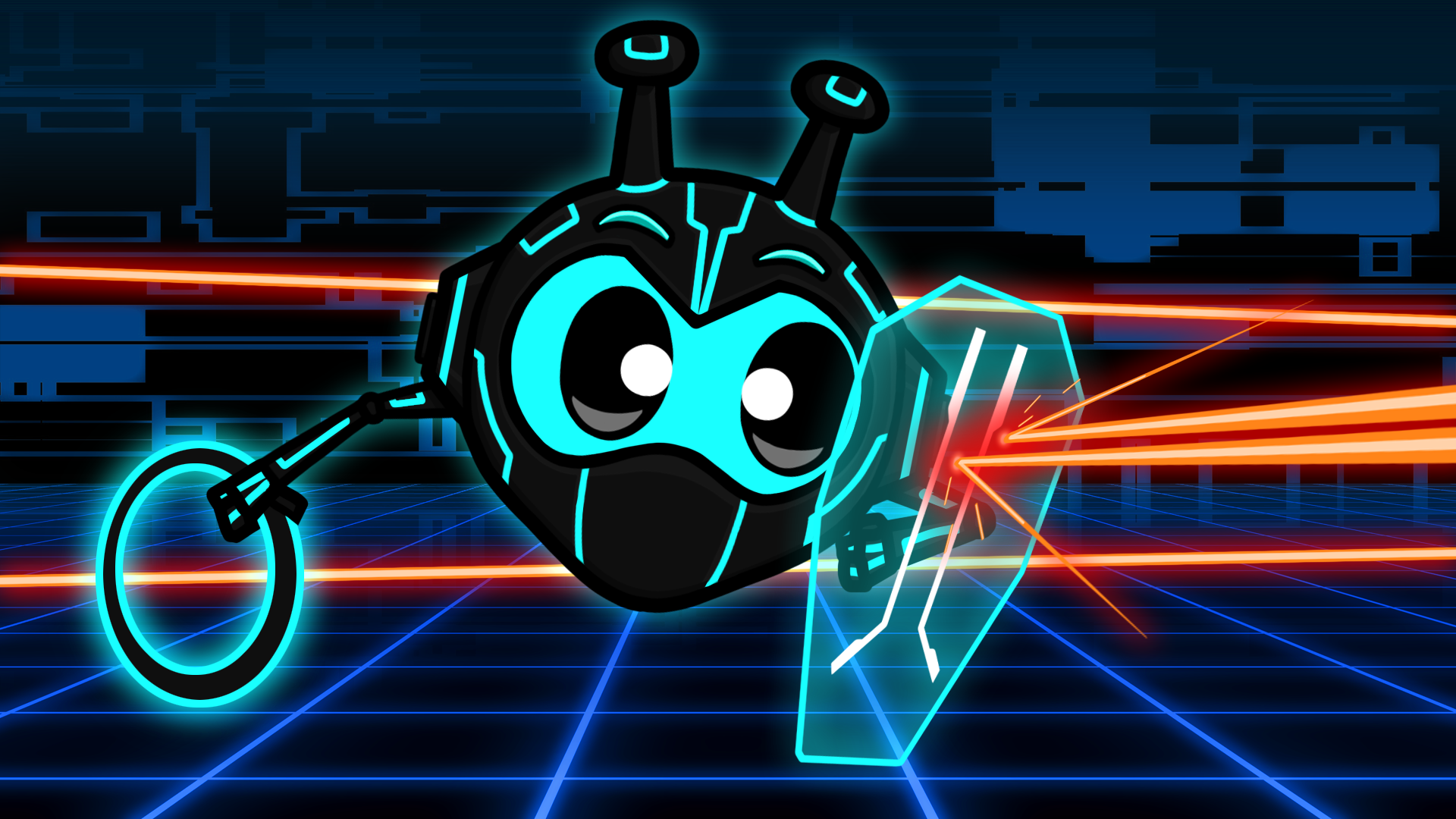I learned everything I know about hacking in 1995, when Angelina still had short hair, and you needed to know how to skateboard if you wanted to grab that sweet data.
That can’t possibly be what hacking is like, is it? To save you the trouble of learning, I bleached my hair blonde, put on my PVC trench coat, sat down at the computer, and jacked into the Matrix to download all the information on the greatest hacking stunts of all time.
That’s Definitely Not What It’s Like
As it turns out, big-time hacks are not as interesting as I expected. Believe it or not, data breaches are not fun for anyone, especially when they happen to you. (I don’t know who needs to hear this, but change that password you’ve been using since college immediately.)
Neither is reading about them. Sure, we all love seeing the big evil corporation get its comeuppance or watching hacktivists dramatically take center stage - but most of the time, it’s us poor old regular folks getting our money/info/VPN logins stolen. No fun, hackers, no fun!
If I’m honest, I also didn’t understand all the hypertechnical details when I was doing the research, so this hack writer decided to instead focus less on the greatest hacks and more on the people behind them: the irreverent cast of computer characters and their causes keeping it, well, interesting.
FOR THE LOVE OF GLORY!
Montreal’s Michael Calce learned to hack as a 9-year-old in an effort to (successfully) extend his 30-day AOL free trial. From that day forward, he adopted the alias Mafiaboy for his online exploits - an alias only 9-year-old boys could love, but that would go down in history as one of the most notorious and respected names in hacking.
Fast forward to the year 2000, and, like any kid in their first year of high school, a now 15-year-old Michael, err, Mafiaboy, wanted to fit in and be respected by the cool kids. Except his idea of cool had nothing to do with school, but rather impressing the elite hacking community on early chat messenger board IRC.
Yahoo Falls
Mafiaboy learned from the pros in the chat and eventually built himself a powerful DDoS botnet tool designed to put even his trainers to shame. He aimed his sights on Yahoo!, the largest search engine at the time (lol), an impressive multi-billion dollar target to showcase his powers. Yahoo! fell swiftly and remained down for the count for over an hour.
Project Rivolta was born, and the crowd on IRC roared for its new champion. Who was the next target?

The Titan Slayer is Born
Upstart online auction house eBay, naturally, and they fell harder and faster than Yahoo! Slaying these goliaths with ease put Mafiaboy on the map; the (digital) people were talking, with the IRC hacking elite suggesting larger, more sophisticated targets.
Titans CNN, E*Trade, Dell, and even the almighty Amazon fell in quick succession. Undefeated, the crown of cool landed squarely on the head of our 15-year-old digital gladiator, who had really just given in to peer pressure online in pursuit of glory.
The Fallout
Damages totalled an estimated 1.1 billion dollars, none of which ended up in anyone’s pocket, let alone our Mafiaboy’s.
Like any good mafioso story, our gangster was ratted on, logged and tracked by his ISP (VPN, anyone?) and even ended up with a classic movie trope surveillance van parked outside his home, watching his every move.
During his trial, it was referenced that “Government and commercial computer systems are so poorly protected today they can essentially be considered defenceless Electronic Pearl Harbor waiting to happen.”
This ordeal caught the world's attention, including noted cigar aficionado & sax player Bill Clinton, then President of the United States, who swiftly called together a new “internet security” council in response.
Essentially, we have Mafiaboy to thank for bringing cybersecurity out of the shadows and into the daylight. For his service, he spent 8 months in a youth detention center, got one year of probation, restricted use of the Internet (sure), and an obviously necessary fine of 1000 Canadian dollars. These days he’s a white hat consultant and remains in La Belle province.

FOR THE LOVE OF ALIENS
Self-described “bumbling computer nerd” and unquestionable X-Files fan Gary McKinnon knew the truth was out there, and it was up to him to find it. In the weeks after 9/11, the IT expert-turned-hacker gained access to 97 different U.S. military systems at the Pentagon and NASA on a righteous quest to reveal to the world the hidden existence of aliens.

McKinnon, like many before and many since believed the government was holding out on us; that not only did aliens exist, but that there were teams of scientists and scholars currently reverse engineering alien ship technology behind closed doors and suppressing secretly available free energy methods.
So, at the home of his girlfriend’s aunt in London, armed with an unencrypted 56k modem and some commercially available software, McKinnon casually waltzed into what should have been some of the most secure and confidential archives in the world and started poking around like you do in a stranger’s bathroom.
Troll! Troll in the Mainframe!
He left trails of electronic doors open with messages like “Your security system is crap” and “I am Solo” (his could-have-done-better-hacker-must-have pseudonym) as he passed through in search of the one document that would prove his point. He found lists of scientists & military intelligence crews attached to names of unsearchable vessels not listed as oceanic.
As described in his episode of History Channel’s Ancient Aliens, his moment of clarity came when he noticed a file marked unfiltered, which contained a NASA satellite image of a spacecraft. He double-clicked, the image pixels slowly illuminating the screen like the night sky, in the shape of a cigar with geodesic domes attached. As it reached completion, he noticed his mouse cursor “come to life, right-click the LAN icon, and hit disconnect.” His eureka moment, lost; his secret, out.
In March of 2002, the UK’s National High Tech Crime Unit came knocking at the door to his flat and arrested McKinnon and his then-girlfriend. Traced by two-thirds of a grainy “ship” he emailed to himself using his actual email address, his painstaking collection of dial-up downloads was confiscated, and our hopes of alien knowledge were dashed.
Fighting Extradition
The UK declined to prosecute, but you can bet one day the Stars & Stripes came looking for their, well, £ of flesh, demanding extradition and trial. Military authorities claim they spent well over $800,000 recovering from the damage, saying McKinnon stole passwords, deleted essential files, and ruined infrastructure - something he denies to this day. He was found guilty and is considered an electronic terrorist - he would face 70 years in the US.
McKinnon battled extradition for nearly a decade and finally won his “freedom” in 2012 after Teresa May & co stepped in and blocked it from happening. He drives a forklift now, far away from the hacking that derailed his life and relationships.
And the truth, it is said, remains out there.

FOR THE LOVE OF… SPAM?
Okay, so maybe this title is a little misleading, but the shelling of the Spamhaus Project in March of 2013 was the single largest DDoS attack of its time, running upwards of 300GB per second of pure rage against the spam & email filtration company. The reason for the attack? A protest of Spamhaus’s blacklisting of CyberBunker, a freedom-heavy internet service provider.
Boasting clients like WikiLeaks and The Pirate Bay, CyberBunker aimed to provide “services to any website except child pornography and anything related to terrorism,” earning its name earnestly, working out of not one but two old NATO Cold War bunkers in Zeeland (TIL this was an actual place, not a typo), and later Germany.

Rousing the Rabble
Believing it had been unjustly targeted & blacklisted, CyberBunker rallied the tech troops from the depths of cyberspace, led by Sven Olaf Kamphuis, a 30-something from Holland (who referred to himself as the “minister of telecommunications of the Cyberbunker republic”), to take down Spamhaus in a monster DDoS attack the likes of which we had never seen.
In cooperation with "criminal gangs'' from Eastern Europe and Russia, Sven and the gang hit hard, with the attack lasting close to a whole week. Filling the internet tubes so full of juicy hacksauce that they bordered on bursting, the attack slowed the entire internet down, almost collapsing it entirely into darkness!
All this to attack a company that aimed to filter out the spam we all hate so much!? Don’t overstep your boundaries, people! (Do try to keep the internet free, though.)
Playing to Stereotype
The best part is that Sven got arrested like a true cyberpunk - beside his van, rigged up like a mobile hacking office, full of computers, cords, coffee cups, and crumbs, outside of his (surely) similarly decorated flat.

Some Sobering Stats
Hacking still has an almost glamorous Hollywood appeal that makes the stories I’ve relayed here so entertaining, exciting, and cool. There are plenty more, and I struggled to narrow it down to just three for this article.
The truth, however, is that hacking is a very real, very serious issue that privacy-aware internet users should be aware of. Most hacking is malicious and far from the Robin Hood image of hacking heroes.
According to a 2018 University of Maryland study, estimates show that there is a cyberattack every 39 seconds, affecting 1 in every 3 people in the US alone.
Cyber Security Ventures predicts that companies will spend over 1 trillion dollars from 2020-2025 to defend against cyber attacks.
What can you do to help keep yourself protected while online? Aside from being thoughtful about your actions and what you click, the easiest first step is to use a VPN!

Like Liam Neeson in Taken, Windscribe has a very particular set of skills, err, tools that work together to block ad trackers & web beacons, restore access to blocked content, and, most of all, help you safeguard your privacy online.
It isn’t difficult to take your internet security into your own hands. Try Windscribe for free today.
And for Garry’s sake, change your passwords to something new & unique.
Seriously, just do it!









